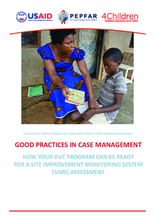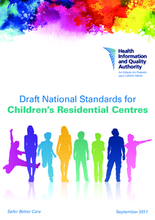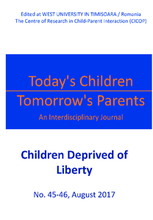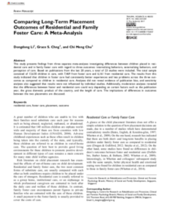Displaying 2371 - 2380 of 4424
This guide has been written in order to assist OVC program personnel to understand key terms and concepts used in the Site Improvement Monitoring System (SIMS) Community Tool, specifically the section on case management services for OVC.
Ireland's Health Information and Standards Directorate has launched a public consultation on the Draft National Standards on Children's Residential Care. Once finalized, the Standards will provide a framework for the ongoing development of child-centred and effective services for children living in residential care centres. This document contains the preceding Draft Standards, eligible for feedback through 02 November 2017.
In this interview, neuroscientist Nim Tottenham discusses the impact of institutional caregiving on children's development.
Drawing upon census data, this report shows that place, race, and poverty are intertwined concepts with particular implications for young children.
An inspection of children's homes in the Mukono Municipality of Uganda revealed that most were not meeting minimum standards; in response, municipality leaders have suspended the registration of new children's homes and orphanages in the area.
CRS is seeking a Project Director (PD) to ensure timely and quality program design, startup, implementation and management of the 4Children program in Haiti.
This special issue of the journal Today's Children are Tomorrow's Parents explores the issue of children deprived of liberty, or the detention of children, around the globe from the perspective of experts from various disciplines.
This study presents findings from three separate meta-analyses investigating differences between children placed in residential care and in family foster care with regard to three outcomes: internalizing behaviors, externalizing behaviors, and perception of care.
This paper addresses the challenges and benefits of involving biological parents in group homes in Israel and presents various means to encourage their involvement in care.
This report reviews the existing literature on the impact of child sexual abuse within various types of institutional care settings around the world.





